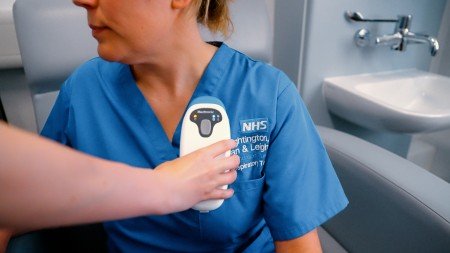
Cardiac science involves analysing for known or suspected heart disease.
As a Cardiac Physiologist you will:
-
Have a lot of direct patient contact, working with people of all ages
-
Carry out crucial tests to diagnose, monitor and assist in interventional procedures.
-
Carry out procedures including echocardiography (an ultrasound of the heart), exercise stress testing and pacemaker implantation and follow up.
Career progression
There are many different opportunities to progress in this profession, some of these are as below:
-
Healthcare Science/ Assistant Associate
-
Healthcare Science Practitioner
-
Clinical Scientist
-
Consultant Clinical Scientist
Depending on the level you enter the profession there are various routes for careers progression and course options to progress up the ladder
How do I start?
-
You’ll need 5 GCSEs at grade 9-4 (or equivalent), usually including maths and English and a double science
-
2 or 3 A-Levels (or equivalent level 3 qualifications) at college or 5th form, including one science subject.
-
Alternatively take a science degree then apply for the NHS Scientist Training Programme.
-
Apply for an approved 3-year healthcare science degree where you can specialist in Cardiac Physiology
